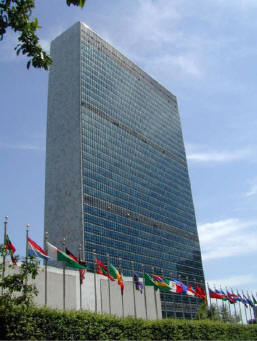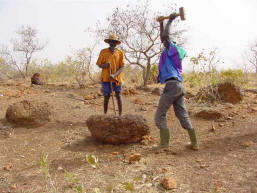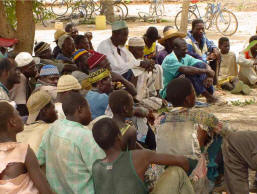|
|
||
|
UN Convention |
||
|
Deserification is acknowledged as a global problem
Formation of the UNCCD |
UN-Building in New York |
|
|
Goals and Core Elements of the UNCCD But only little money is provided for the protection and amelioration of already degraded soils and landscapes.
Implementation of the UNCCD
High demands with regard to program implementation |
||
|
UNCCD: Final statement after 10 years Apart from these action programs there were and still are numerous quite successful projects. These projects were implemented especially by non-governmental organizations and within bilateral cooperations and in close partnership with the farmers. |
The farmers as the actual “makers” when fighting desertification were often forgotten – too many coordination meetings, expert opinions, recommendations and reports. |
|
|
Challenge for the non-governmental organizations (NGOs) The NGOs are especially suited for initiating and financing the implementation of these measures or they can take over jobs as partners within a major program. |
Farmers’ organizations with intact social structures are our strongest and most reliable partners for mutual actions.
|
|
|
|
||


